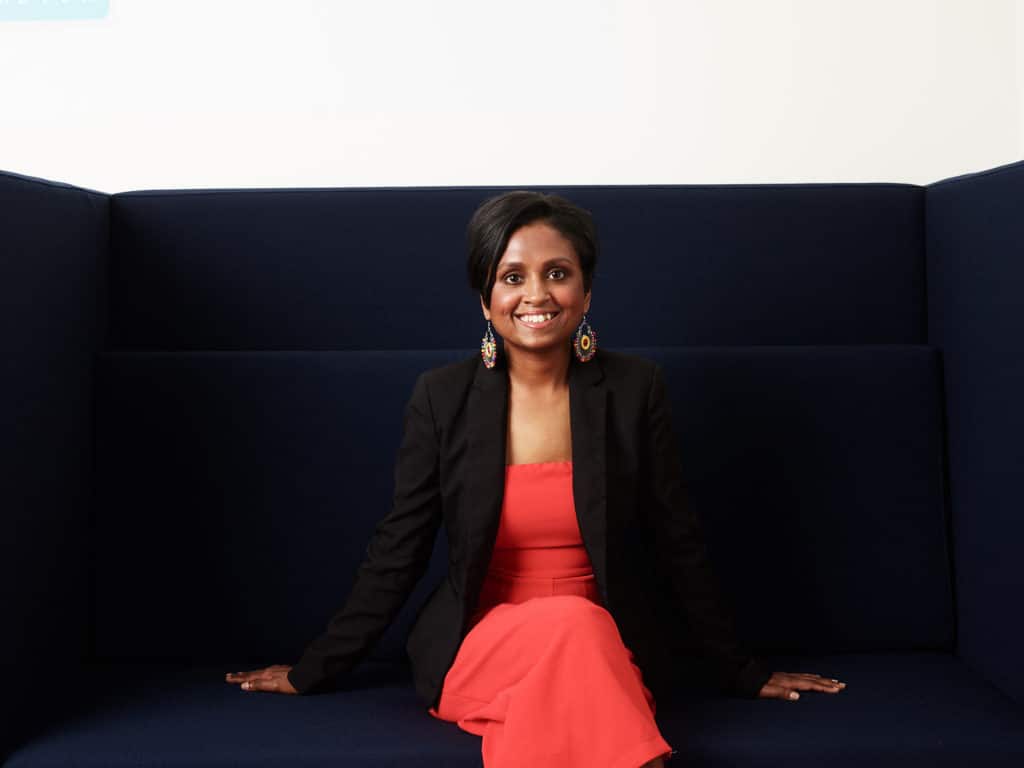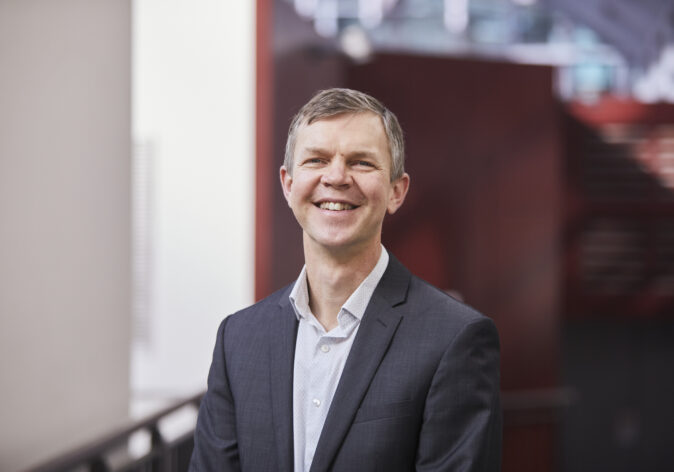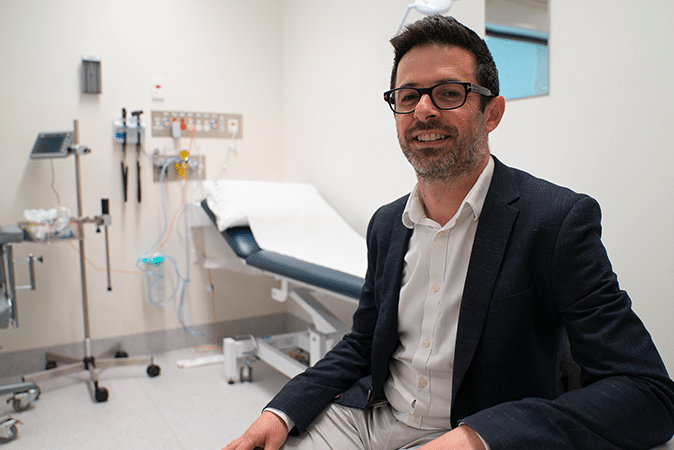Dr Gowri Sivalingam’s Diagnosis
There can be a lot of confusion after receiving a breast cancer diagnosis, as you are suddenly exposed to a whole new language and environment.
However, Dr Gowri Sivalingam understood exactly what her diagnosis meant.
Gowri is a paediatric surgeon and she was diagnosed four years ago with invasive ductal carcinoma.
However, she said she initially thought it was improbable that the lump she found on Christmas day in 2015 could be breast cancer.
“I just felt a sharp pang of pain and I know that breast cancer isn’t painful, lumps are not tender, but I felt this sharp pain which brought my attention to it and I felt the lump there.”
“But the pain disappeared after it came and then I thought, I’m too young for it to be anything and because I’m a Doctor I started thinking it’s probably fat necrosis,” she said.
“So I went back to work on Monday and I’m pretty close to one of my consultants in Perth and I told her about it and she felt it and she said ‘you need to go and have an ultrasound’ and I thought, ‘I can’t. I’m on call today. Look I’m holding the on-call phone, I can’t go.’ And she looked at me and said ‘you can give the on-call phone to someone else’ and she went and grabbed a ultrasound form and she wrote it out and she said ‘call and go now.’ I said ‘OK’.”
She said she went for the ultrasound but couldn’t wait for the results.
“I had one of my residents call up and tell them to fax the results over to the office, which is not something you’re supposed to do.”
“But I just couldn’t wait because my appointment with the consultant was the following week on a Monday, and I was just too nervous about getting the results and I knew no one would tell me over the phone,” she said.
“That’s not something that is usually is done. They’ll call you to consulting room and break the news to you.”
“So, I had it faxed over and the I read the first part of it and then I ran to the staircase and I sat there, and I cried for a bit. I think I literally cried for like five minutes.”
She said she then called her mother who insisted on her getting a second opinion.
“I knew what it meant and I knew a pathological tissue diagnosis wasn’t going to change.”
“So, I tried to explain that, and it took a couple of times before she understood that it was a tissue diagnosis. It wasn’t going to change if I had another biopsy sent to another lab.”
Listen to the podcast
Gowri shares what it’s like to be diagnosed with breast cancer as a young woman, working throughout treatment, participating in a clinical trial and what it’s like to be diagnosed with cancer when you are a doctor.
Working Through Breast Cancer Treatment
Gowri was in a unique situation, as she was on a working visa and wished to be treated in Australia.
“The only way I could continue my treatment is if I had a job.”
“So, I had to work in order to pay for the private insurance, and private insurance in Australia is just awesome. Because it literally paid for almost all my treatment,” she said.
“So, I didn’t stop work, but obviously I took a step back. I stopped doing on-calls because it wouldn’t have been safe anyway.”
“I still went to work, went for clinics, still went to do some surgeries. But obviously nothing major and there was always a consultant around anyways who scrubbed into theatres.”
Participating in a Clinical Trial
Gowri was asked by her oncologist if she would like to participate in a clinical trial. It was called the AbbVie clinical trial and was for women with early stage triple negative breast cancer.
“She explained to me about the trial, about the drug Veliparib, and that there was a possibility that I wouldn’t get the drug if I was on the trial, but I’d still be getting the normal chemotherapy you’d get for women who were diagnosed with this type of cancer”
“I thought that breast cancer treatments have come a long way and the only reason why it’s come a long way is because of all this and I thought if I was going to contribute anything, this would be a good way.”
She said her trust in her oncologist was a large part in her deciding to participate.
“She was active in participating in trials and I knew she was a good oncologist.”
“Because she had suggested this, I immediately said, yes, that’s fine. I’ll do it. Whatever helps and if I get the drug that’s working and if it’s going to help, that’s a good thing as well.”
Recovering from a Breast Cancer Diagnosis
Gowri said by focussing on the future, and the support of her family, friends and colleagues, she was able to get through her treatment.
“I never sat down and dwelled on things.”
“I always looked forward, even when I was reading my diagnosis and I sat there in that staircase, I just started to look forward to what I needed to do to get things done, and I never looked back.”
It’s been about four years since Gowri received her diagnosis, and while she said she has mostly recovered, she still has some symptoms.
“I still get lymphodema on and off in my arm because I’ve had the radiotherapy and axillary clearance done. It sometimes flares up and I get significant swelling.”
“I have had days that I have to take off work because of the swelling, just to rest my arm in a high position and I’m not a very compliant patient so I don’t wear my compression sleeve.”
“It’s kind of hard when you’re working in a hospital and you’re a surgeon, because you’re always scrubbing in and out of theatres and it can be a bit difficult and I can be a difficult patient as well,” she said.
“So, I do get flare ups every now and then, but I try my best to keep myself active.”



